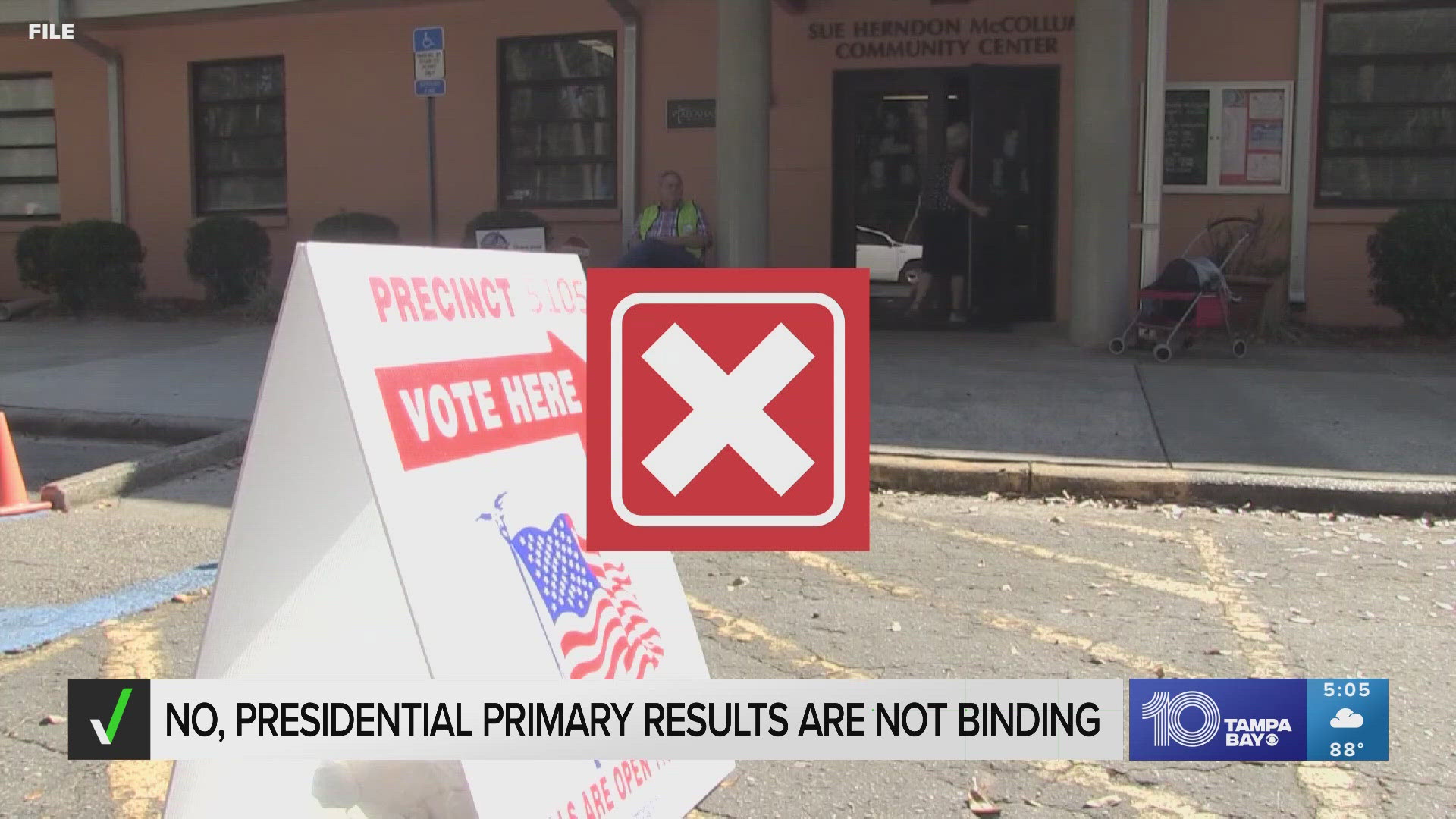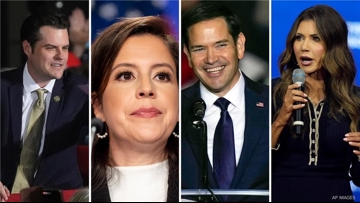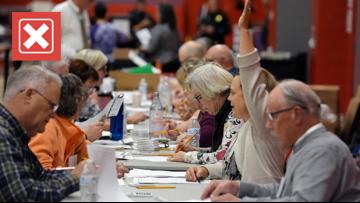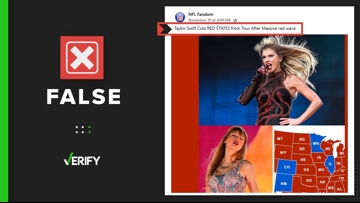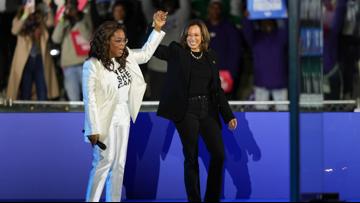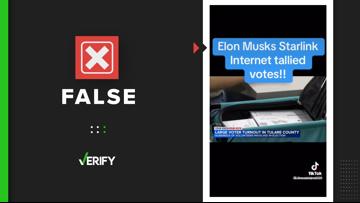ST. PETERSBURG, Fla. — No candidate has ever dropped their reelection bid as close to the general election as President Joe Biden.
The announcement that he ended his campaign came just four weeks before the Democratic National Convention and just under four months before Election Day.
Several claims have been made about the legality of the move and the impact it could have on ballots.
Even before the president officially announced the end of his reelection bid, former Republican Utah Representative Jason Chaffetz speculated during a segment on "Fox and Friends"' in June that names couldn't be switched on the ballot if Biden dropped out.
The exchange was posted on TikTok by the user @NoAmnesty2 and got more than 32,000 likes within three and a half weeks.
Republican House Speaker Mike Johnson made similar claims during an appearance on ABC "This Week," after Biden announced he was ending his re-election bid.
"So, it would be wrong, and I think unlawful, in accordance to some of these states' rules for a handful of people to go in a back room and switch it out because they're, they don't like the candidate any longer," Johnson said.
Here's what we can VERIFY from those claims.
OUR SOURCES
- U.S. Constitution
- Florida Statute
- Democratic Party rules
- U.S. Supreme Court
- Elaine Karmack, senior fellow at the Brookings Institution
- The National Constitution Center
CLAIM
Biden's name can no longer be removed from ballots.
ANSWER
Biden's name is not yet on general election ballots because the Democratic Party has not yet officially nominated a candidate.
WHAT WE FOUND
The process by which major parties choose a candidate for the general election is determined through a combination of state law and convention rules.
In 1979, the Supreme Court ruled that party rules take precedence over state laws when it comes to nominating a candidate for President and Vice President. In other words, states can’t tell political parties how to pick their nominee.
However, many states have statutes that set a date for when the major parties should submit the candidate they nominate for President. In Florida, state law says that “each political party shall...recommend candidates...no later than noon on August 24 of each presidential election year.”
The Democratic Party will vote for an official presidential nominee at the Democratic National Convention (DNC), which will run from August 19 until August 22. Once that roll call vote is held to determine the nominee, the party can then submit the names of the candidates to each state.
Before President Biden announced the end of his reelection campaign, DNC officials said they planned to hold a “virtual roll call” before the start of the convention to get ahead of ballot deadlines in some states.
That plan could change now that Biden has dropped out of the race.
The initial plan was to do the virtual roll call sometime between August 1 and August 7. The DNC’s rules committee scheduled a meeting for Wednesday, July 24 to finalize its plans for holding the roll call vote, including details on when it will happen and whether it will be virtual or in-person.
But with Biden winning the primary election, some have wondered if those votes bind him to the nomination.
CLAIM
Delegates are bound to vote for Joe Biden as the official nominee because of primary election results.
ANSWER
No, there is no law binding primary election results to the candidates appearing on the general election ballot.
WHAT WE FOUND
While the U.S. Constitution establishes the Electoral College, laying out the process for electing a President and certifying the votes, it does not say anything about how to nominate a president.
With the ratification of the Constitution, the norm for choosing presidential and vice presidential candidates was through delegate votes at party conventions.
Primary elections started to come about during the Progressive Era, with the first primaries beginning in the early 1900s. However, they held little to no weight in who the major parties ultimately chose as their nominees.
In the 1970s, the major parties reformed their convention rules to “ensure that more voters had a direct role in choosing political nominees,” according to the National Constitution Center.
Today, delegates sent to their party’s national convention are supposed to essentially go to bat for a specific candidate based on the result of their state’s primary election.
Democratic Party rules say that “[d]elegates elected to the national convention, pledged to a presidential candidate, shall in all good conscience reflect the sentiments of those who elected them.”
So, while the primary election results are not legally binding, delegates are responsible for ensuring the will of the voters is properly represented when voting for a nominee.
But if voters chose Biden in the primary election, how should delegates vote during roll call?
Elaine Kamarck, senior fellow in governance studies at the Brookings Institution, explained that the phrase “in all good conscience” leaves room for delegates to vote for someone else if their candidate is no longer an option.
And, if that candidate drops out of the race, there’s no other rule that says delegates would automatically be bound to a specific person to replace them.
Instead, all the nearly 4,000 Biden delegates are allowed to cast their votes for anyone they want. This process is known as a brokered convention and it’s how nominees were decided until presidential primaries became the norm.
If no candidate has a majority after the first round of voting, party elders called “superdelegates” are allowed to participate in the next round.
The delegates continue to vote until someone wins a majority and becomes the next presidential nominee.
VERIFY’s Casey Decker and Megan Loe, and The Associated Press contributed to this report.
